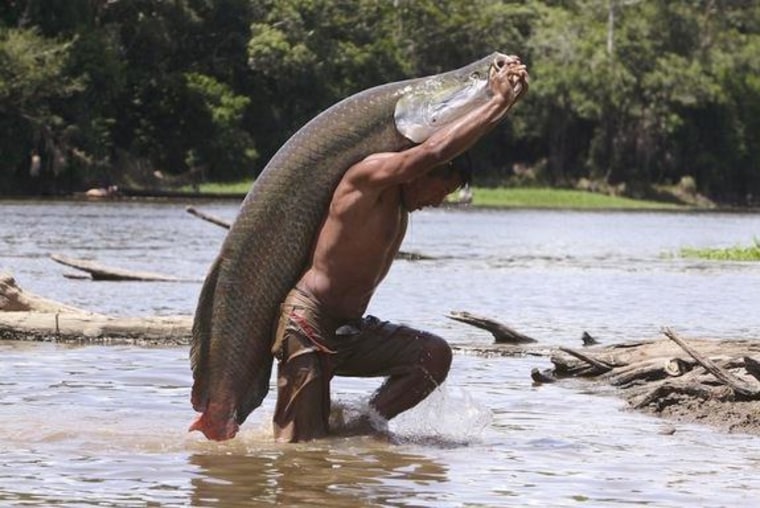Measuring 10 feet (3 meters) long and weighing in at more than 400 pounds (180 kilograms), it's hard to imagine that the arapaima, the largest fish in the Amazon River basin, could ever go missing. But these huge fish are quickly disappearing from Brazilian waterways, according to a new study.
A recent survey of fishing communities in the state of Amazonas, Brazil, found that the arapaima is already extinct in some parts of the Amazon basin. In other parts of the Amazon, its numbers are rapidly dwindling.
However, the researchers also uncovered some good news: In communities where arapaima fishing is regulated, the species is actually thriving, giving the researchers hope that conservation of the species is still possible. [Photos of the Largest Fish on Earth]
The study was published online on Wednesday in the journal Aquatic Conservation: Freshwater and Marine Ecosystems.
Commonly known as pirarucu, arapaima (Arapaima gigas) are the largest freshwater fish in South America. They're unique among fishes for their ability to breathe air — a feat made possible by a primitive lung, which they possess in conjunction with a gill system that allows them to breathe underwater. The fish developed this function because they typically live in oxygen-poor waterways, according to the Tennessee Aquarium, which is home to several arapaima.
But while this supplemental breathing technique helps the fish survive in its native habitat, it also makes the arapaima much easier to catch, according to the researchers.
Of the five known species of arapaima, three have not been observed in the wild in decades, according to study co-author Donald Stewart, a professor with the State University of New York at Syracuse's College of Environmental Science.
— Elizabeth Palermo, LiveScience
This is a condensed version of a report from LiveScience. Read the full report. Follow Elizabeth Palermo on Twitter. Follow LiveScience on Twitter, Facebook and Google+.
